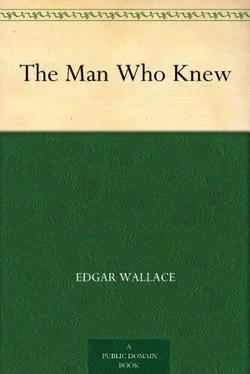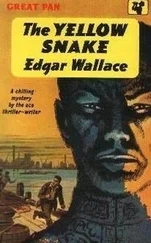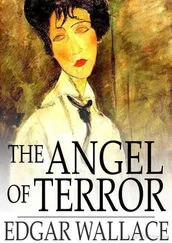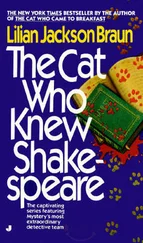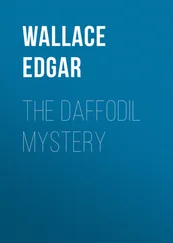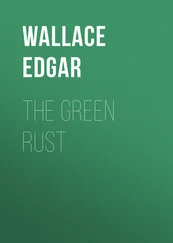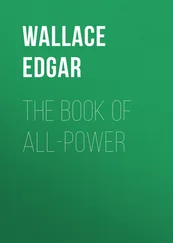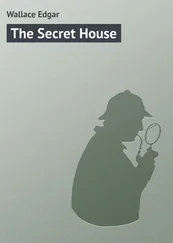Weald Lodge stands between Eastbourne and Wilmington, and in the winter months the curious, represented by youthful holiday makers, are few and far between. Constable Wiseman, of the Eastbourne constabulary, certainly was not curious. He paced his slow, moist way and merely noted, in passing, the fact that the flood of light reflected on the little patch of lawn at the side of the house.
The hour was nine o'clock on a June evening, and officially it was only the hour of sunset, though lowering rain clouds had so darkened the world that night had closed down upon the weald, had blotted out its pleasant villages and had hidden the green downs.
He continued to the end of his beat and met his impatient superior.
"Everything's all right, sergeant," he reported; "only old Minute's lights are blazing away and his windows are open."
"Better go and warn him," said the sergeant, pulling his bicycle into position for mounting.
He had his foot on the treadle, but hesitated.
"I'd warn him myself, but I don't think he'd be glad to see me."
He grinned to himself, then remarked: "Something queer about Minute—eh?"
"There is, indeed," agreed Constable Wiseman heartily. His beat was a lonely one, and he was a very bored man. If by agreement with his officer he could induce that loquacious gentleman to talk for a quarter of an hour, so much dull time might be passed. The fact that Sergeant Smith was loquacious indicated, too, that he had been drinking and was ready to quarrel with anybody.
"Come under the shelter of that wall," said the sergeant, and pushed his machine to the protection afforded by the side wall of a house.
It is possible that the sergeant was anxious to impress upon his subordinate's mind a point of view which might be useful to himself one day.
"Minute is a dangerous old man," he said.
"Don't I know it?" said Constable Wiseman, with the recollection of sundry "reportings" and inquiries.
"You've got to remember that, Wiseman," the sergeant went on; "and by 'dangerous' I mean that he's the sort of old fellow that would ask a constable to come in to have a drink and then report him."
"Good Lord!" said the shocked Mr. Wiseman at this revelation of the blackest treachery.
Sergeant Smith nodded.
"That's the sort of man he is," he said. "I knew him years ago—at least, I've seen him. I was in Matabeleland with him, and I tell you there's nothing too mean for 'Ready-Money Minute'—curse him!"
"I'll bet you have had a terrible life, sergeant," encouraged Constable Wiseman.
The other laughed bitterly.
"I have," he said.
Sergeant Smith's acquaintance with Eastbourne was a short one. He had only been four years in the town, and had, so rumor ran, owed his promotion to influence. What that influence was none could say. It had been suggested that John Minute himself had secured him his sergeant's stripes, but that was a theory which was pooh-poohed by people who knew that the sergeant had little that was good to say of his supposed patron.
Constable Wiseman, a profound thinker and a secret reader of sensational detective stories, had at one time made a report against John Minute for some technical offense, and had made it in fear and trembling, expecting his sergeant promptly to squash this attempt to persecute his patron; but, to his surprise and delight, Sergeant Smith had furthered his efforts and had helped to secure the conviction which involved a fine.
"You go on and finish your beat, Constable," said the sergeant suddenly, "and I'll ride up to the old devil's house and see what's doing."
He mounted his bicycle and trundled up the hill, dismounting before Weald Lodge, and propped his bicycle against the wall. He looked for a long time toward the open French windows, and then, jumping the wall, made his way slowly across the lawn, avoiding the gravel path which would betray his presence. He got to a point opposite the window which commanded a full view of the room.
Though the window was open, there was a fire in the grate. To the sergeant's satisfaction, John Minute was alone. He sat in a deep armchair in his favorite attitude, his hands pushed into his pockets, his head upon his chest. He heard the sergeant's foot upon the gravel and stood up as the rain-drenched figure appeared at the open window.
"Oh, it is you, is it?" growled John Minute. "What do you want?"
"Alone?" said the sergeant, and he spoke as one to his equal.
"Come in!"
Mr. Minute's library had been furnished by the Artistic Furniture Company, of Eastbourne, which had branches at Hastings, Bexhill, Brighton, and—it was claimed—at London. The furniture was of dark oak, busily carved. There was a large bookcase which half covered one wall. This was the "library," and it was filled with books of uniform binding which occupied the shelves. The books had been supplied by a great bookseller of London, and included—at Mr. Minute's suggestion—"The Hundred Best Books," "Books That Have Helped Me," "The Encyclopedia Brillonica," and twenty bound volumes of a certain weekly periodical of international reputation. John Minute had no literary leanings.
The sergeant hesitated, wiped his heavy boots on the sodden mat outside the window, and walked into the room.
"You are pretty cozy, John," he said.
"What do you want?" asked Minute, without enthusiasm.
"I thought I'd look you up. My constable reported your windows were open, and I felt it my duty to come along and warn you—there are thieves about, John."
"I know of one," said John Minute, looking at the other steadily. "Your constable, as you call him, is, I presume, that thick-headed jackass, Wiseman!"
"Got him first time," said the sergeant, removing his waterproof cape. "I don't often trouble you, but somehow I had a feeling I'd like to see you to-night. My constable revived old memories, John."
"Unpleasant for you, I hope," said John Minute ungraciously.
"There's a nice little gold farm four hundred miles north of Gwelo," said Sergeant Smith meditatively.
"And a nice little breakwater half a mile south of Cape Town," said John Minute, "where the Cape government keeps highwaymen who hold up the Salisbury coach and rob the mails."
Sergeant Smith smiled.
"You will have your little joke," he said; "but I might remind you that they have plenty of accommodation on the breakwater, John. They even take care of men who have stolen land and murdered natives."
"What do you want?" asked John Minute again.
The other grinned.
"Just a pleasant little friendly visit," he explained. "I haven't looked you up for twelve months. It is a hard life, this police work, even when you have got two or three pounds a week from a private source to add to your pay. It is nothing like the work we have in the Matabele mounted police, eh, John? But, Lord," he said, looking into the fire thoughtfully, "when I think how I stood up in the attorney's office at Salisbury and took my solemn oath that old John Gedding had transferred his Saibach gold claims to you on his death bed; when I think of the amount of perjury—me a uniformed servant of the British South African Company, and, so to speak, an official of the law—I blush for myself."
"Do you ever blush for yourself when you think of how you and your pals held up Hoffman's store, shot Hoffman, and took his swag?" asked John Minute. "I'd give a lot of money to see you blush, Crawley; and now, for about the fourteenth time, what do you want? If it is money, you can't have it. If it is more promotion, you are not fit to have it. If it is a word of advice—"
The other stopped him with a motion of his hand.
"I can't afford to have your advice, John," he said. "All I know is that you promised me my fair share over those Saibach claims. It is a paying mine now. They tell me that its capital is two millions."
Читать дальше
